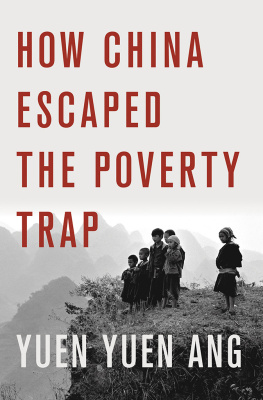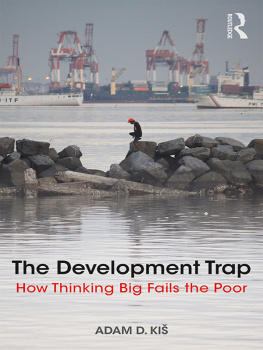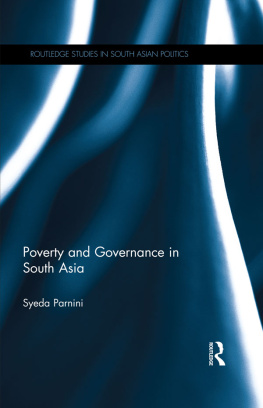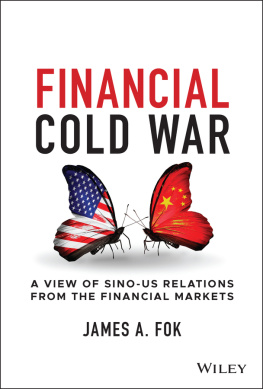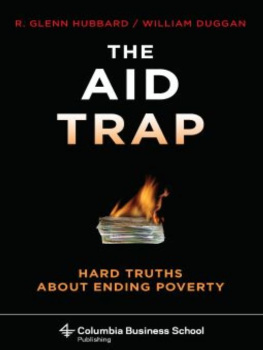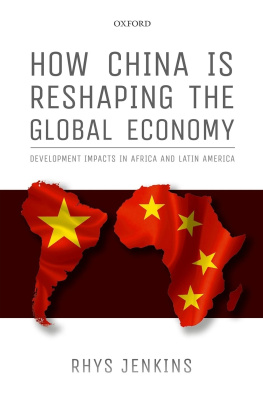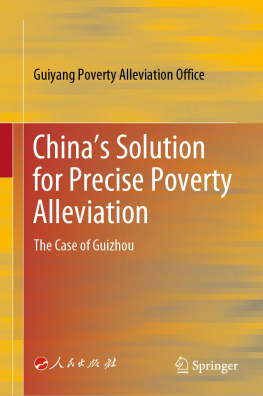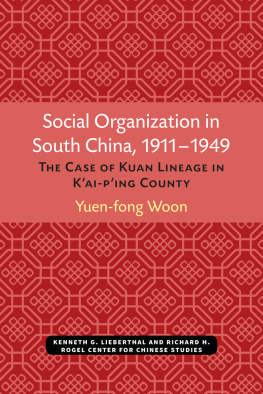Preface
This book grew out of an earlier book I had abandoned.
Originally, I set out to write a book to explain why China could be a developmental (growth-promoting) state if it did not possess the Weberian (professional) bureaucracies necessary for effective growth promotion. On the surface, this was a good question, or so I thought.
But soon I realized the question was wrong.
First of all, are Weberian bureaucracies really a precondition for economic development? If good institutions like Weberian bureaucracies are necessary for market success, then where do these preconditions come from? Arent they themselves dependent on the level of economic growth?
Second, is China indeed a developmental state and does it lack Weberian bureaucracies? Many observers credit Chinas local governments for strongly and proactively promoting growth. Yet others lambaste the same actors for the opposite problems: ineptitude and corruption. So whos right and whos wrong? In fact, depending on where and when you look within China, you can find every variety of political economy, from developmental to predatory, Weberian to patrimonial, modern to backward. In a country that changes so rapidly and varies so widely across regions, no single description is completely right.
Acknowledging that every part of the story was moving, I felt momentarily paralyzed.
Traditional concepts and tools of analysis work well when something can be held constant. In a simple example, when comparing a wealthy and a poor country, we look for variation in the two cases. If they are nearly identical in all respects except one, say, the quality of governance, we may infer that this factor is a likely cause of their economic variance.
Yet what if the cause is a consequence of the outcome? Clearly, institutions and governance are deeply influenced by the level of economic development. One may apply statistical techniques to isolate the causal effects of institutions on the economy (also known in technical parlance as treat endogeneity). But such techniques do not resolve the fact that the two variables are intrinsically interdependent.
Furthermore, what if both the cause and the consequence are moving targets that change over time? For instance, Shanghai was poor, messy, and corrupt in the 1980s, but by the 2010s it approximated the modern, developmental states of East Asia. Was it institutions that changed the economy or vice versa?
Analysts may try to get around these problems by tracing causation back to some deep causes that are presumably constant, such as geography or shocks that occurred in the past. But if factors like geography or history are primarily what determine present-day outcomes, then it suggests that successes and failures are predestined. If a country lacks the right geography or historical legacy, is it doomed? How can we explain the reversal of fortunes among some places that inherited poor geography or a traumatic past?
The more I thought about these questions, the more I wondered if we shouldand couldstudy the world in a different way. The reality of political-economic development is that almost everything moves. Can we understand this reality without trying to hold things constant?
Thus I cast aside my original inquiry and restarted with a basic question: How did development actually happen? If we embrace reality as it is and simply follow the moving parts from point to point, what will we learn?
This book reports what I discovered from my detour into unfamiliar but ultimately more fruitful territory.
Acknowledgments
The creation of this book was an excruciating adventure, filled with surprises and rewards but also anxiety and toil. It would not have been possible to start and finish this long and winding journey without the generous assistance, encouragement, and opportunities provided by many individuals. First and foremost, my acknowledgment goes to mentors at Stanford University. My greatest debts are owed to Jean Oi, as it was Jean who prodded me back onto the path of a scholarly career when I had given up. It was also Jean who instilled in me an unconditional passion for studying politics on the ground; her tireless enthusiasm for fieldwork and interviewing was testimony to the intrinsic joy and scholarly duty of discovering what people really do. David Laitins intellectual breadth and teaching sparked a lasting curiosity for big questions, and his sharp advice kept me on track at critical junctures. Alberto Diaz-Cayeros and Beatriz Magaloni showered generous concern both for my work as a scholar and for my happiness as a person; they were my role models of fine scholarship and kindness. Jonathan Roddens comparative perspective pushed me to think about problems I would otherwise have taken for granted. Andrew Walder patiently listened to my ideas long before they made any sense. He deserves my utmost thanks for continuing to have faith in me and lending encouragement and support whenever it was most needed. More recently, a clarifying conversation with Jonathan Bendor, from whom I had learned about bureaucracies and principles of reasoning, helped me rethink some arguments.
Many other colleagues have influenced the evolution of this book. I wish to thank Atul Kohli, Deborah Yashar, and Miguel Centeno for including me in the Princeton Workshops on State Capacity in the Developing World. This series of workshops, which spanned years and took place in three different continents broadened my horizons and allowed me to test new ideas and receive feedback from esteemed colleagues as my questions and answers evolved. In particular, I thank Atul for inspiring me to take my work in a historical direction. At the workshop in New Delhi, he urged me to develop a genetic account, that is, to trace the origins of the institutions I studied. His suggestion sparked a new path and then subsequent ones, culminating in this book.
I was privileged to join the faculty at Columbia Universitys School of International and Public Affairs (SIPA). I am especially thankful for the warm welcome and collegiality of Jos Antonio Ocampo, Alfred Stepan, Victoria Murillo, Jenny McGill, John Coatsworth, Andrew Nathan, and Isabela Mares. Colleagues and students at Columbia piqued my interest in international development and expanded the scope of this study in ways I could not otherwise have envisioned.
During my years at the University of Michigan, I have benefited from a supportive environment and exposure to new ideas. Mary Gallagher was an extraordinary comrade who once hosted guests at her place till midnight for a conference that I organized (and for this and more, Ken Duck, thanks to you too). She carefully read and commented on this book from its early to final incarnation. Pam Brandwein cheered me during good and bad times and was always there to remind me of what was important; without her unfailing support and abundant kindness, I would have given up many times. Learning about Robert Axelrods pioneering work on complex adaptive systems was essential for reconstructing this book; otherwise I would have dismantled a previous project but would not have known what to do next. And it was also Bob who reminded me to write simply. Jim Morrows incisive feedback pushed me both to clarify the substance of my arguments and to improve their framing; conversations with him motivated a substantial revision of the conclusion. Mariah Zeisberg and I shared mutual words of encouragement and many stimulating conversations despite our different fields of study.

